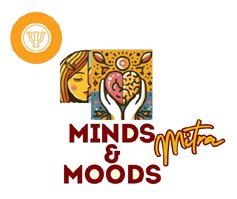Unlocking Positive Change: An Overview of Behavioral Therapy
Behavioral therapy is a focused, action-oriented approach to mental health counselling that helps individuals change problematic behaviors. It’s built on the principle that all behaviors, both adaptive and maladaptive, are learned and can therefore be unlearned or replaced. A psychotherapist or psychologist uses various techniques to identify triggers and teach new, more effective coping mechanisms. It’s a versatile form of treatment used for a wide range of issues, from managing anxiety to improving social skills.
A Trusted Professional in Nagpur: Rrimi Bodalkar
For individuals in Nagpur seeking expert guidance, Rrimi Bodalkar, a Sr. Psychotherapist / Mental Health Counsellor, is a highly qualified professional. With her M.A. in Psychology (Counselling) and PGDMH (Clinical), she provides a comprehensive and tailored approach to mental wellness. As an NSDC Certified professional in Psychometric Analysis & Learning Style Assessment, she is equipped to conduct various evaluations, including IQ testing, Personality assessment, and Neuropsychological testing. Her specialization in CBT, REBT & DBT makes her particularly adept at helping clients with a wide array of concerns, from ADHD testing and Autism spectrum evaluation to PTSD counselling and personal counselling. She also offers specialized services like executive coaching and sports psychology, demonstrating her versatility in the field.
Recognizing the Symptoms and Causes
People often seek behavioral therapy when they notice persistent behaviors or emotional responses that interfere with their daily life. The symptoms that indicate a need for this kind of therapy can include:
- Emotional distress: Overwhelming anxiety, panic attacks, phobias, or the intense sadness associated with depression.
- Maladaptive behaviors: Engaging in compulsive habits, avoidance of social situations (social skills training), or uncontrolled expressions of anger (anger management counselling).
- Relationship problems: Repeated conflict in personal or professional relationships, which may be addressed through relationship counselling, marriage counselling, or couple therapy.
- Coping difficulties: Using unhealthy strategies to deal with workplace stress, burnout, or trauma, leading to a need for PTSD counselling.
The causes of these behaviors are rooted in a variety of factors, including past learning experiences, environmental influences, and genetic predispositions. For example, a person might develop a phobia from a traumatic event or learn negative thinking patterns from observing family members.
The Procedure of Treatment
The procedure of treatment in behavioral therapy is highly structured and collaborative. It focuses on present-day problems rather than delving extensively into the past.
Functional Analysis: The therapist and client work together to identify the specific behavior, its triggers, and the consequences that maintain it.
Skill Acquisition: The psychologist teaches new skills to replace the problematic behavior. This might involve exposure therapy for phobias, relaxation techniques for anxiety, or assertiveness training for social situations. This is a core component of confidence building and personality development counselling.
Core Therapeutic Modalities:
- Cognitive Behavioral Therapy (CBT): This popular form of behavioral therapy focuses on the link between thoughts, feelings, and behaviors. It helps individuals identify and challenge negative thinking patterns to change their emotional responses.
- Rational Emotive Behavior Therapy (REBT): Similar to CBT, REBT emphasizes that our beliefs about events, rather than the events themselves, are the cause of our emotional distress.
- Dialectical Behavior Therapy (DBT): Often used for more complex issues like mood disorder interventions, DBT focuses on teaching skills in mindfulness, emotional regulation, distress tolerance, and interpersonal effectiveness.
- Exposure Therapy: A specific technique where a person is gradually exposed to the source of their fear in a controlled environment to reduce their anxiety response.
Frequently Asked Questions (FAQ’s)
Q1: How long does behavioral therapy take? A: The duration of behavioral therapy is often shorter compared to other forms of therapy, as it is highly focused and goal-oriented. However, the length of treatment depends on the individual’s specific needs and the complexity of the issue.
Q2: Can it help with issues like anger? A: Yes, behavioral therapy is a highly effective approach for anger management counselling. It helps individuals identify the triggers for their anger and learn new, constructive ways to respond.
Q3: Is behavioral therapy suitable for children? A: Absolutely. Behavioral therapy is a cornerstone of child psychology and is used extensively for support for special needs children, parenting support counselling, and addressing issues like school stress or social skills training.
Q4: Can it be used for professional goals? A: Yes. Techniques from behavioral therapy are integral to services like executive coaching, career counselling, and even public speaking anxiety treatment. It helps individuals build skills to achieve professional goals and manage related stress.
Q5: What’s the difference between a psychologist and a psychotherapist? A: A psychologist typically holds a doctoral degree and can conduct psychological testing, while a psychotherapist is a more general term for a professional who provides talk therapy. Many professionals, like Rrimi Bodalkar, hold qualifications that allow them to fulfill both roles.

